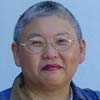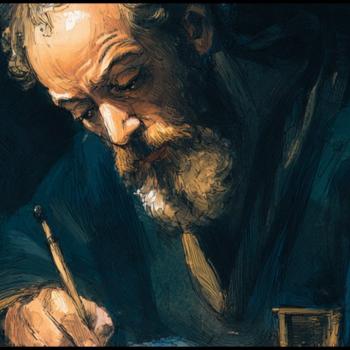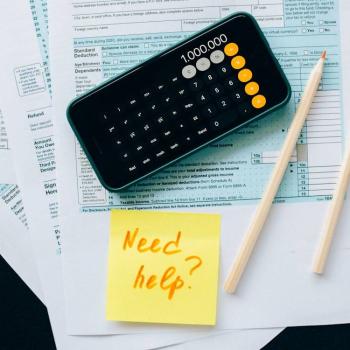 By Mushim Ikeda-Nash
By Mushim Ikeda-Nash
I teach Buddhist meditation retreats for people of color, social justice activists, and women in various parts of the United States, and I'm based as a teacher in Oakland, California. I'm part of a leadership group for the relatively young, donation-based East Bay Meditation Center in Oakland. EBMC's mission is to make diversity and social justice-centered mindfulness practices available to all, with special emphasis on people of color and lesbian, gay, bisexual, transgender, queer, intersex, questioning (LGBTQI), and same-gender loving communities.
These diversity and inclusion-based movements in U.S. Buddhism have arisen in order to address a gap that wasn't being filled by the predominantly white, straight, middle and owning-class Buddhist groups on one hand, and the various Asian immigrant and Asian American Buddhist groups on the other hand.
The people I see in the Dharma hall are, by and large, highly stressed people who are members of communities with long histories of trauma and oppression-related poverty and violence in the U.S. They are interested in meditation as a tool for stress-reduction, centering and grounding, health and well-being, and affirmation of self-worth within a society that sends them daily negative messages. Many of these people are not interested in studying Buddhism academically, and many do not have the time and financial resources to do regular meditation retreats. However, they are passionately interested in a daily practice of sitting and walking meditation, which is taught most accessibly and quickly in the vipassana, or insight, method, and they are interested in what "freedom," "liberation," and "love" mean in Buddhist teachings.
Most of these people are mature individuals who understand that Buddhist practice and teachings will not be a magic, instant fix for suffering. They see Buddhist practices and teachings as something they can integrate into other forms of spirituality and self-help that acknowledge the totality of who they know themselves to be, including their root cultures and family histories.
Buddhism, which is not a religion that posits a Creator God, is able to flow into various communities and cultures fairly easily, if it is taught by people who are perceived to be members of or allies to those communities. Although the messenger is not the same as the message, many people find it difficult to relate to the message until they find a messenger who they feel has lived through the difficulties they themselves have encountered. When a teacher says, "Let's start by accepting things as they are," the students' response might be "Hell no!" if they feel the teacher is urging them to be content with a seat in the back of the bus. Or, the response could be a thoughtful "Yes, I need a way to stand up for myself and be at peace with things I cannot change" if they feel understood and deeply seen by the teacher.
When communities who have not had a collective voice are welcomed to the table, their concerns may not be easily addressed by established Buddhist groups in the U.S. Questions I have heard from different individuals include: "As a transgender person, I cannot safely do walking meditation in my neighborhood park because several transgender people have been attacked there recently, so how can I practice walking meditation?" -- and, "I'm an African American parent of a teenage son, and one of my main concerns is how to keep my son safe from gang violence and police brutality. Did the Buddha teach something that can help me directly?"
As a U.S. citizen, I personally feel that a large part of my national character is to be pragmatic and active. Although I don't demand immediate results from my Buddhist practice, I do want to see positive results in my everyday life, and I have been satisfied with these results. Having been monastically trained in the Zen tradition, I know the benefits and what I judge are the pitfalls of extended retreat and concentration-based practices. Having worked in a wide variety of settings, I see how the precepts and my Bodhisattva vows help me become happier and more effective.
Most of the people I see who are drawn to Buddhism are like me in that they want skills, they want to apply those skills, and they want to see incremental positive results. Furthermore, they don't want to be expected to put up with other forms of oppression or perceived oppression while they're gaining these skills. If someone in authority says "Jump!" they want to be empowered to say, in a reasonable manner, "Please explain to us why" instead of answering, "How high?" The potential Buddhists I now see are largely wary of abusive authority and occulted governmental processes. Shared power, decision-making by some form of consensus, and transparency of government will mark and are marking both the present and the future of Buddhism.
Mushim (Patricia) Ikeda-Nash is a core teacher at the East Bay Meditation Center in Oakland, California. She is one of three faith-based activists featured in the documentary Acting on Faith: Women's New Religious Activism in America, distributed by the Pluralism Project at Harvard University, and has published widely on various Buddhist topics. For more information, see mushim.wordpress.com.
7/5/2010 4:00:00 AM




